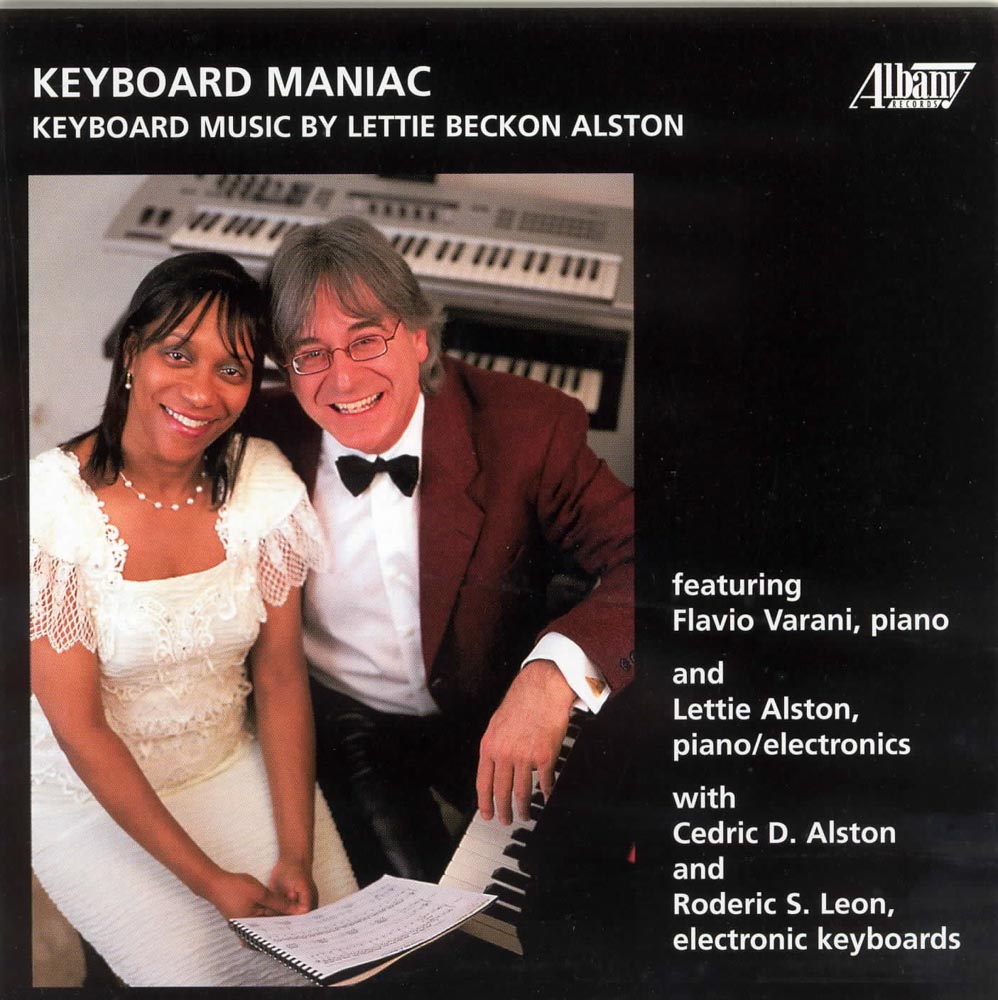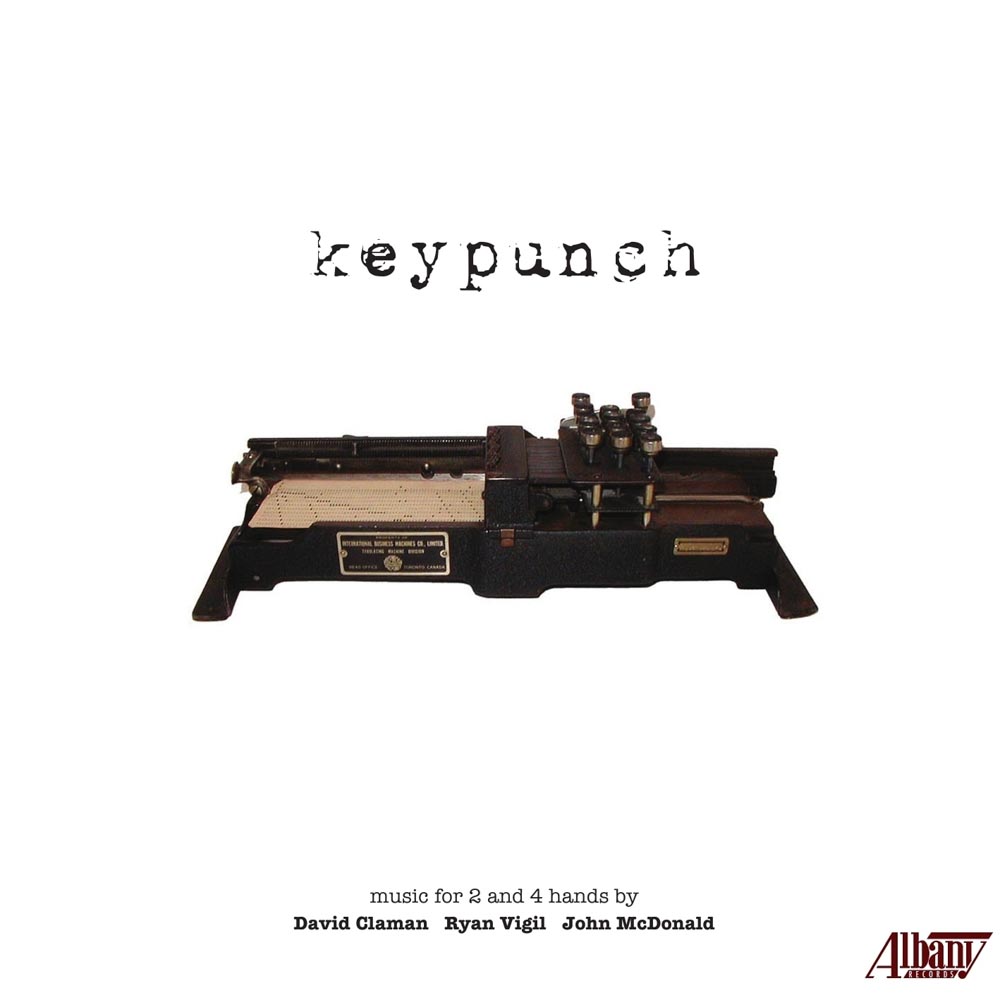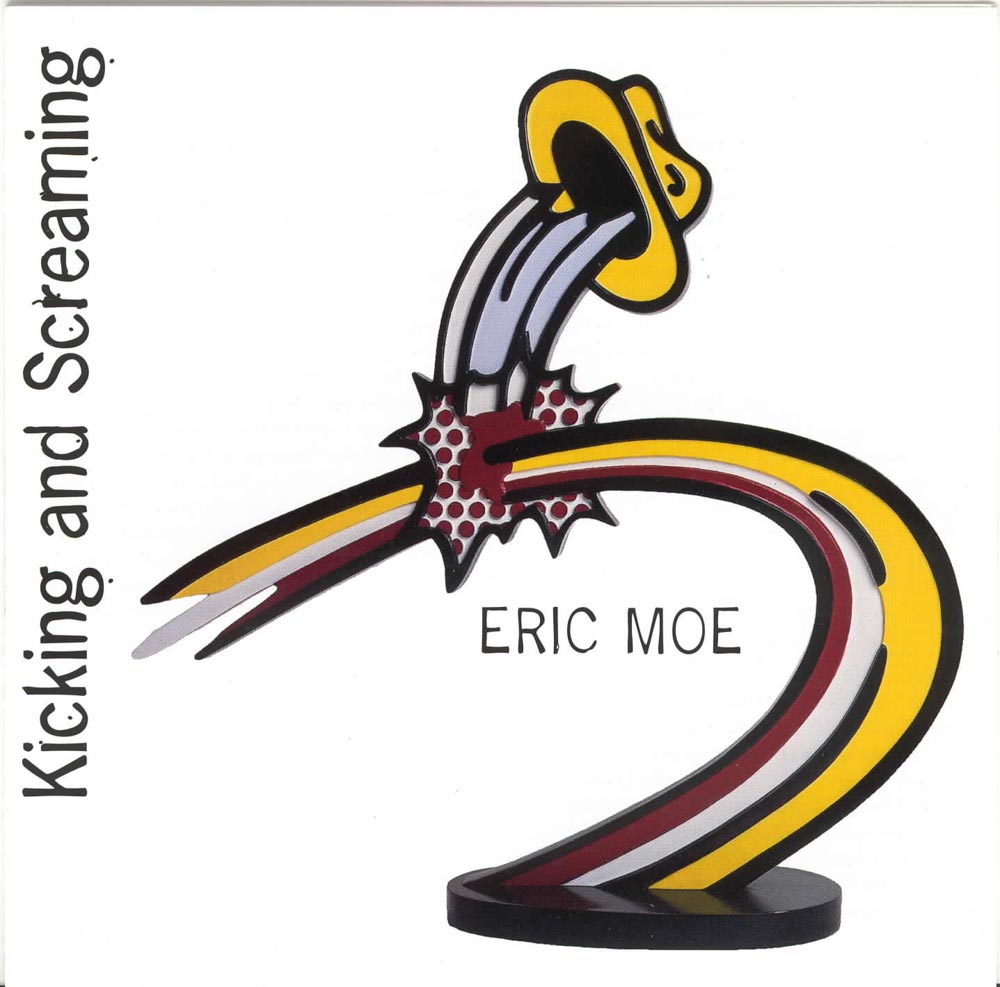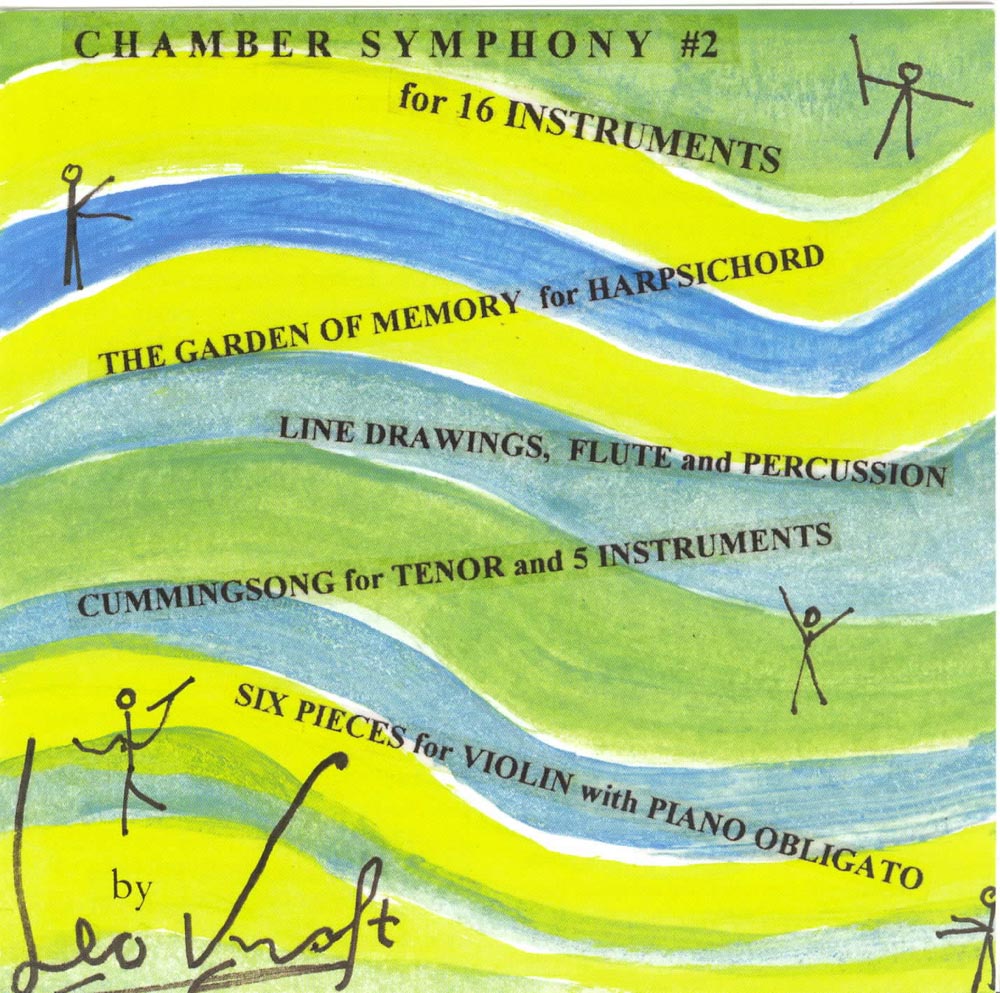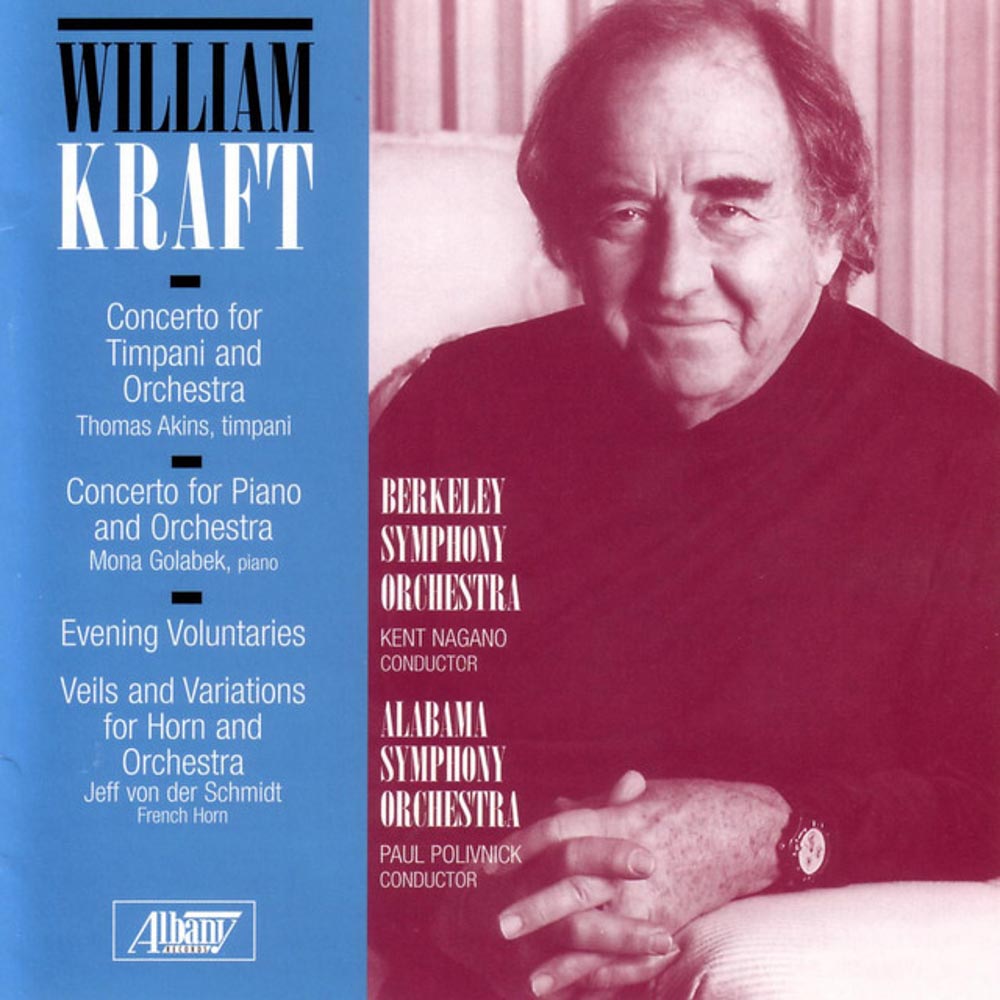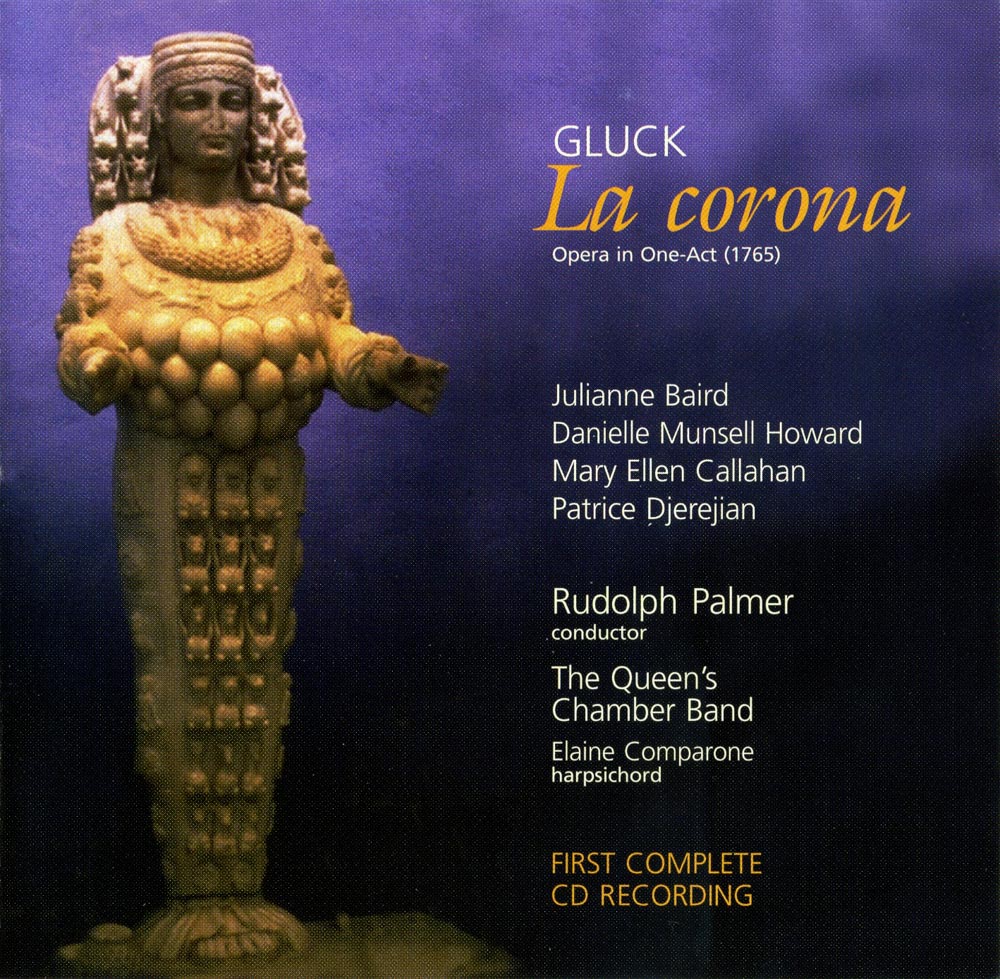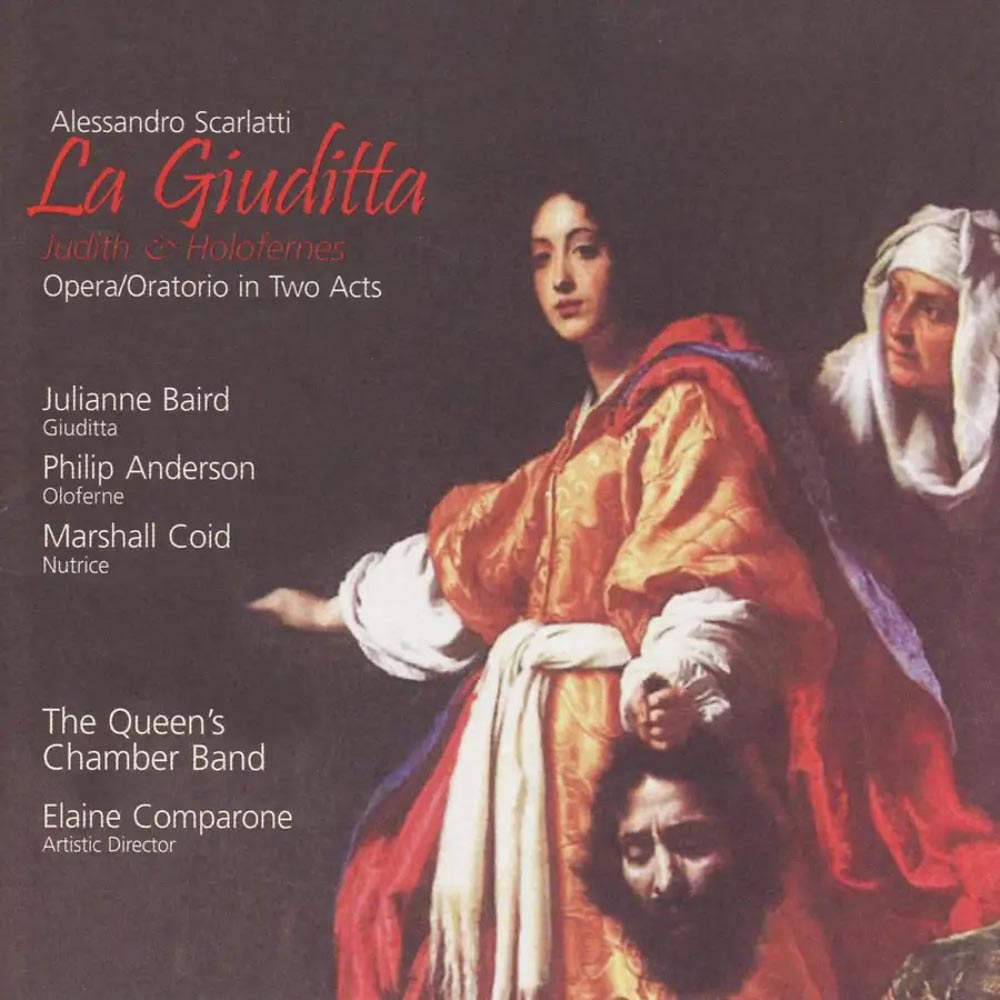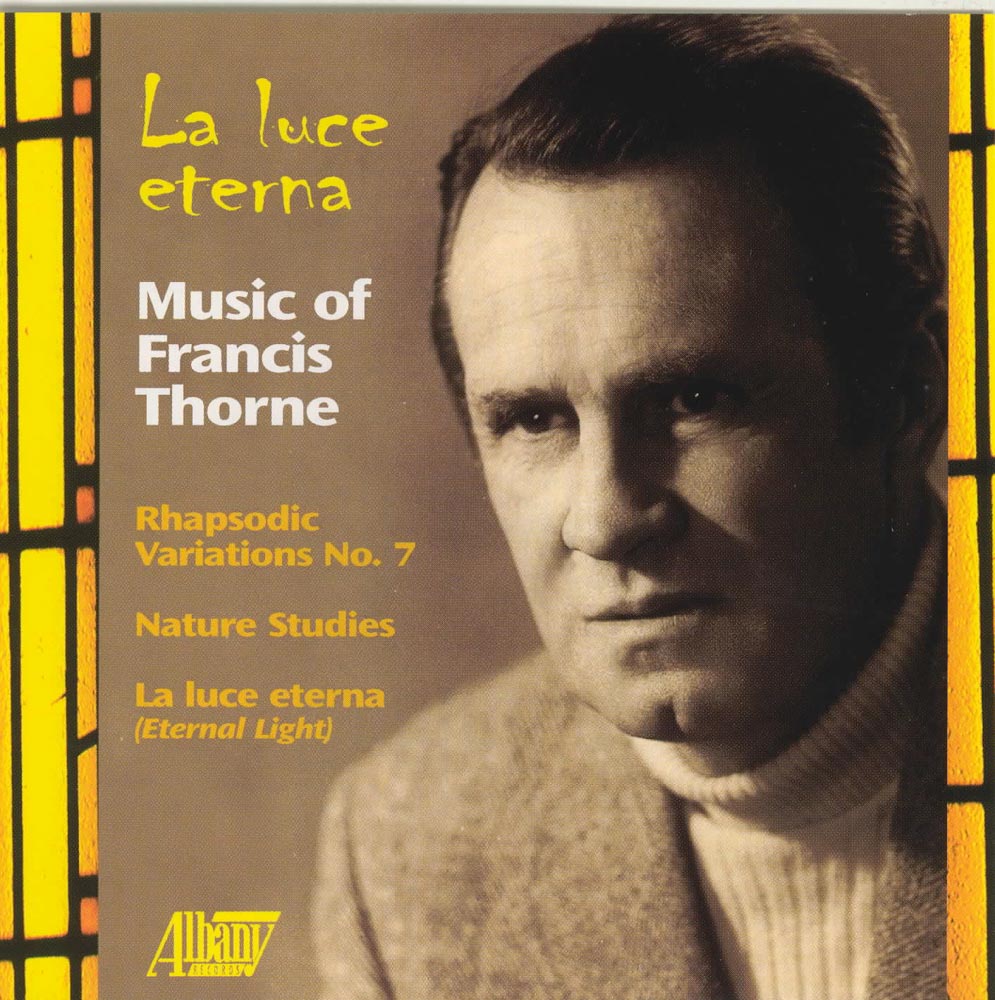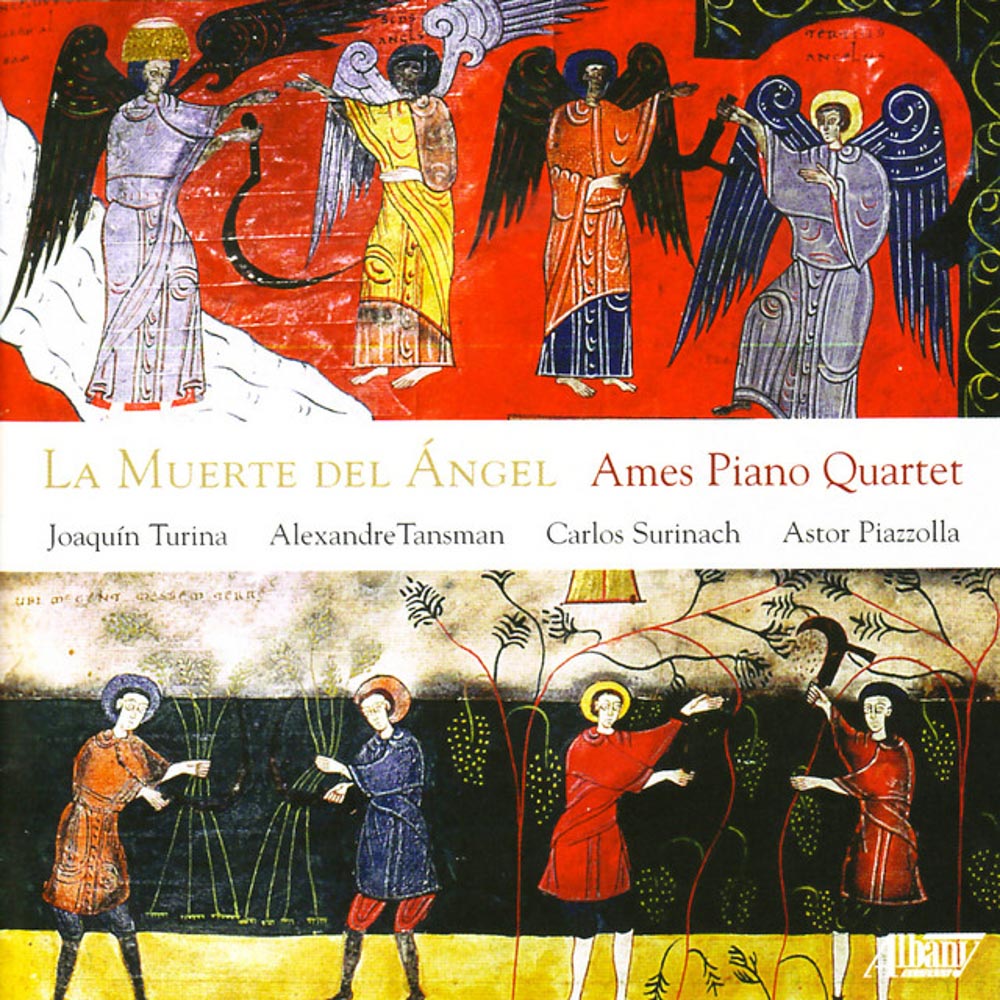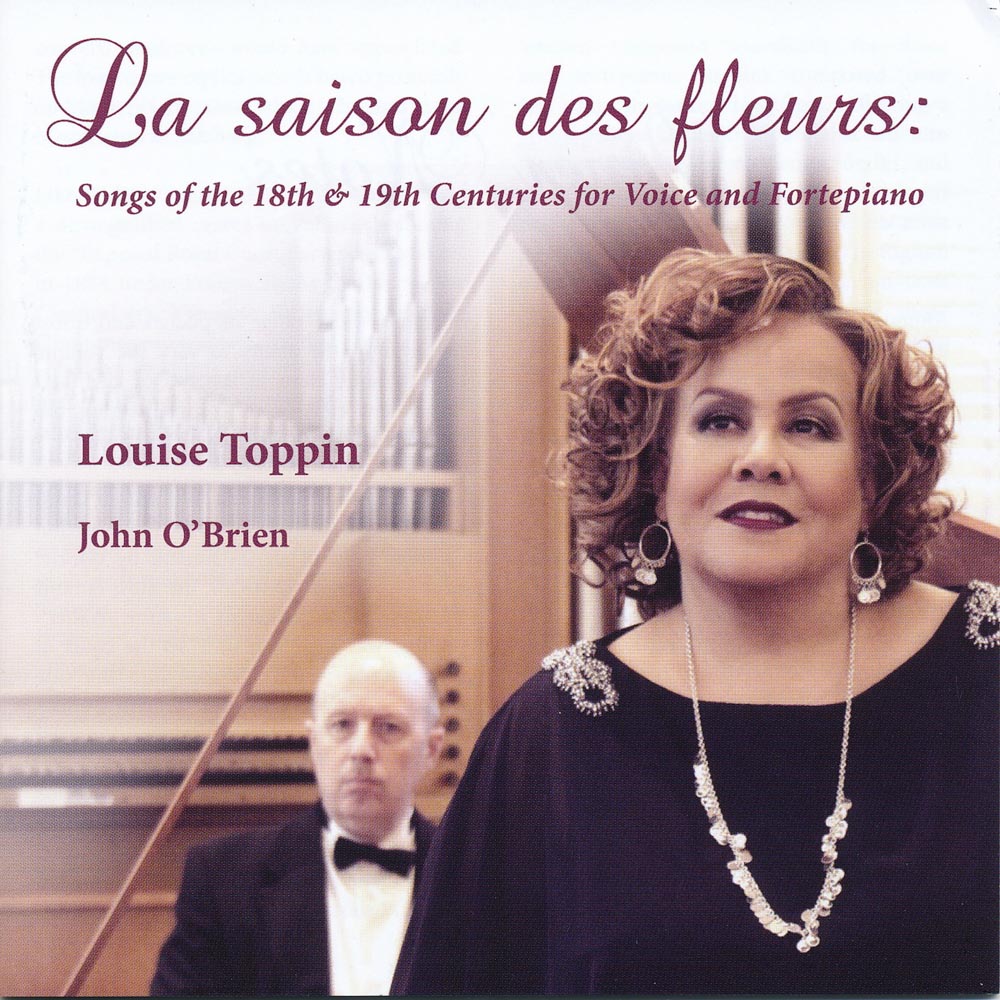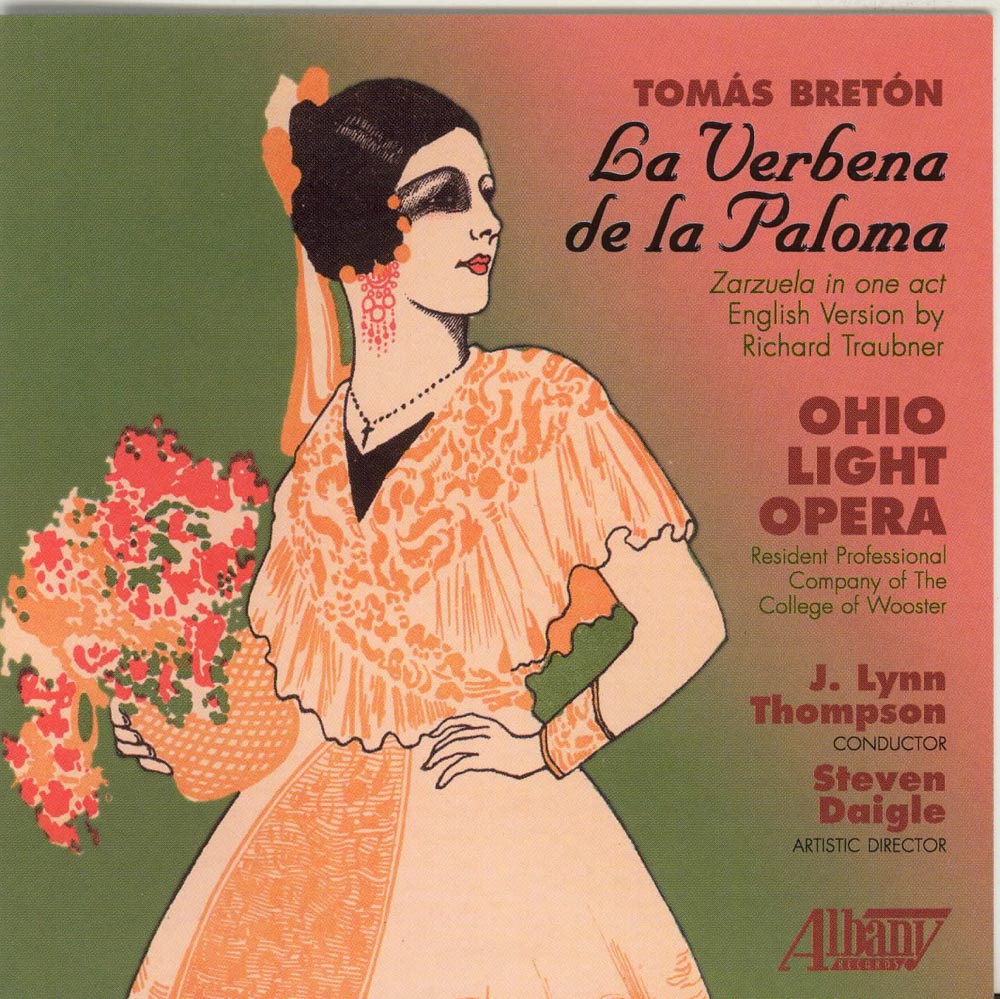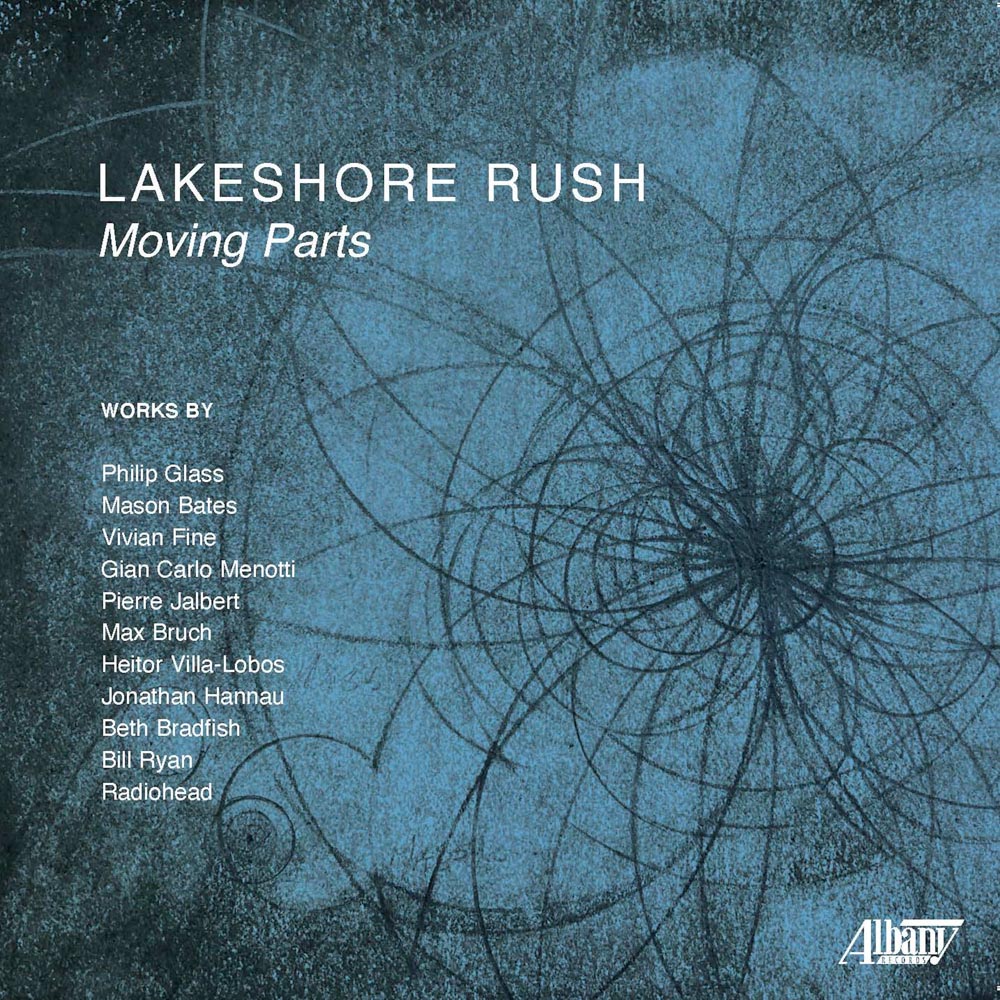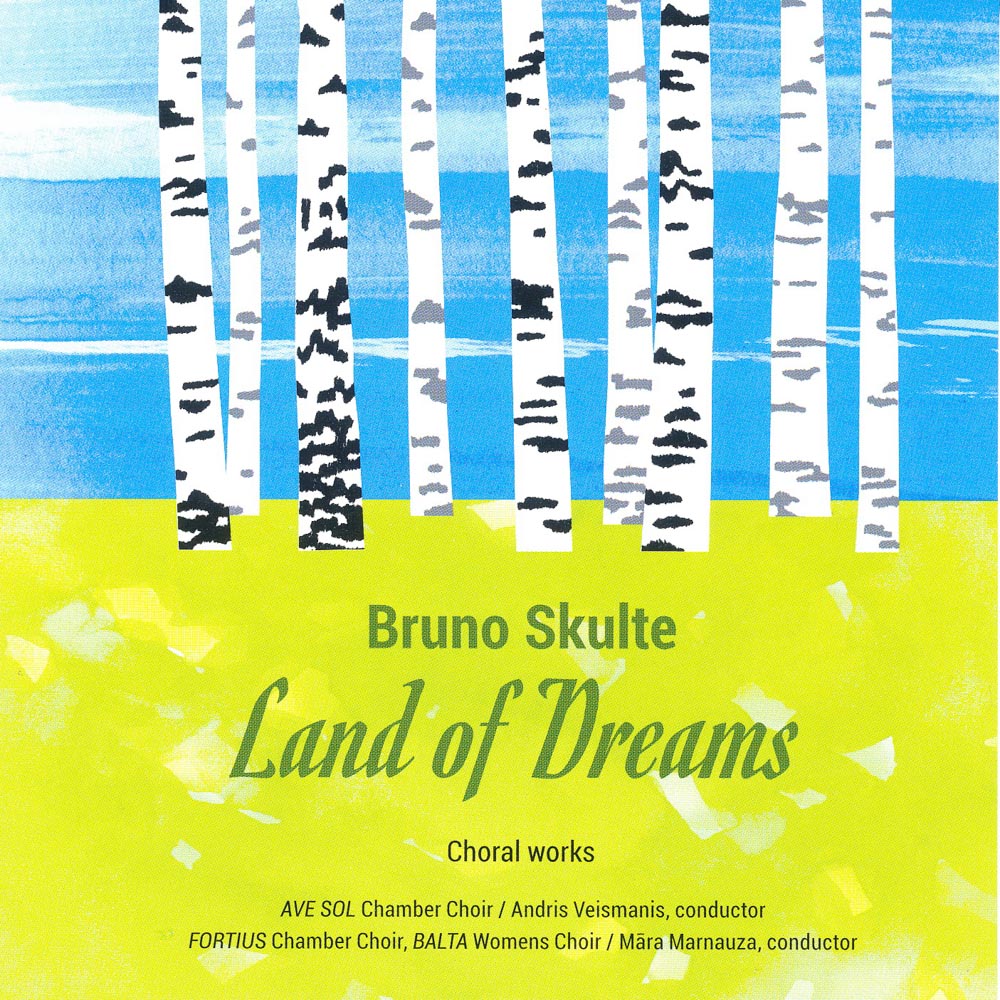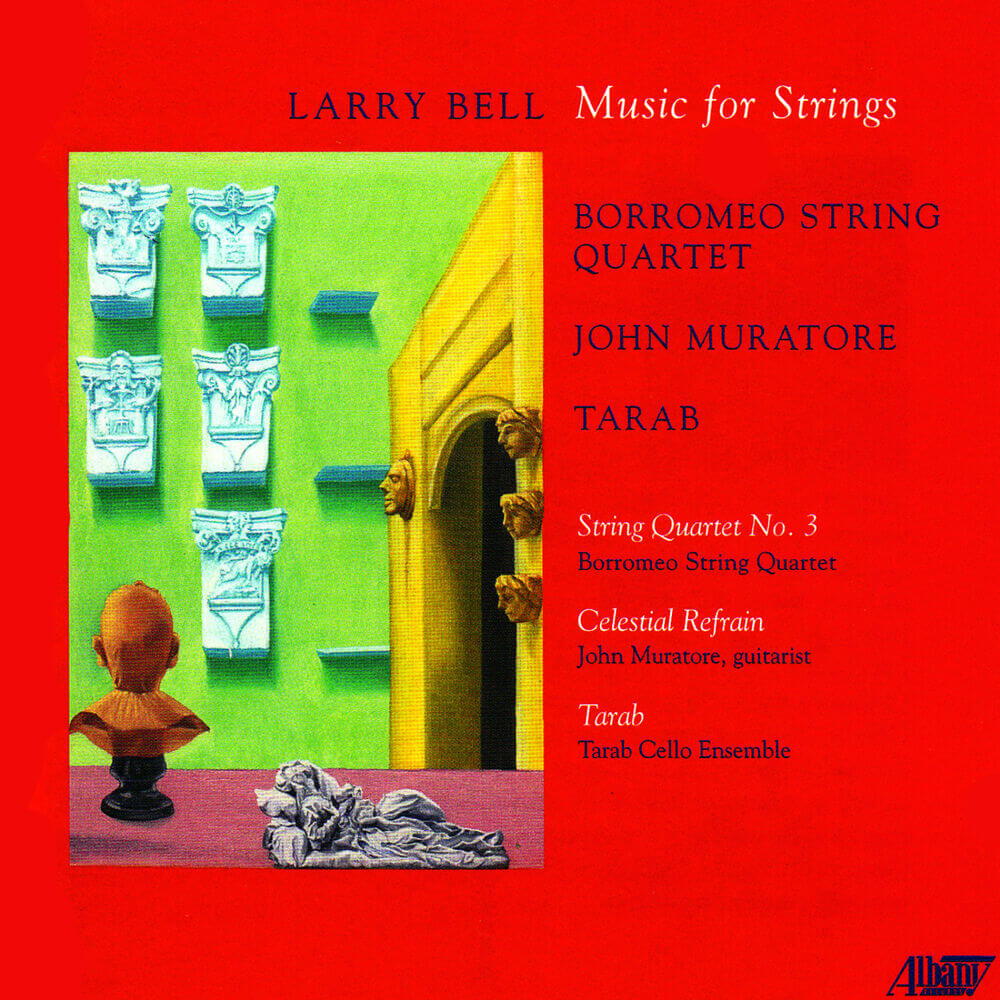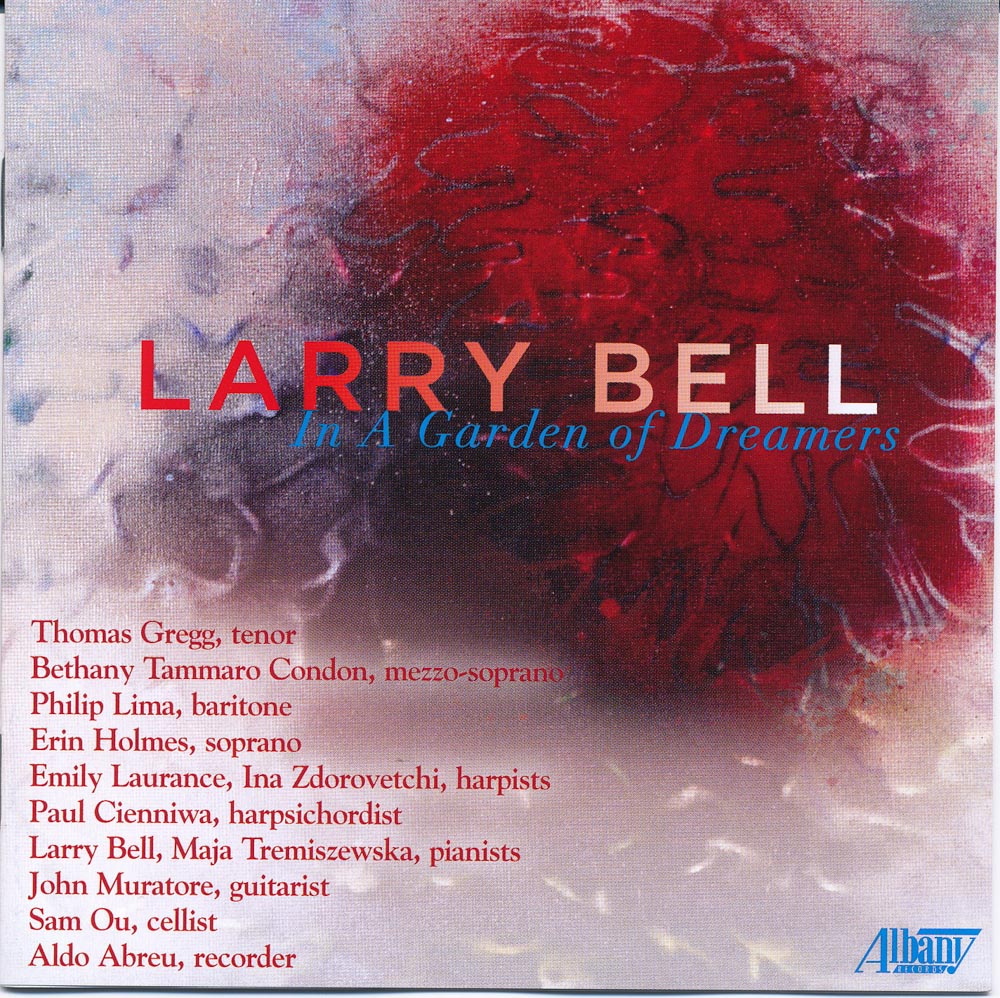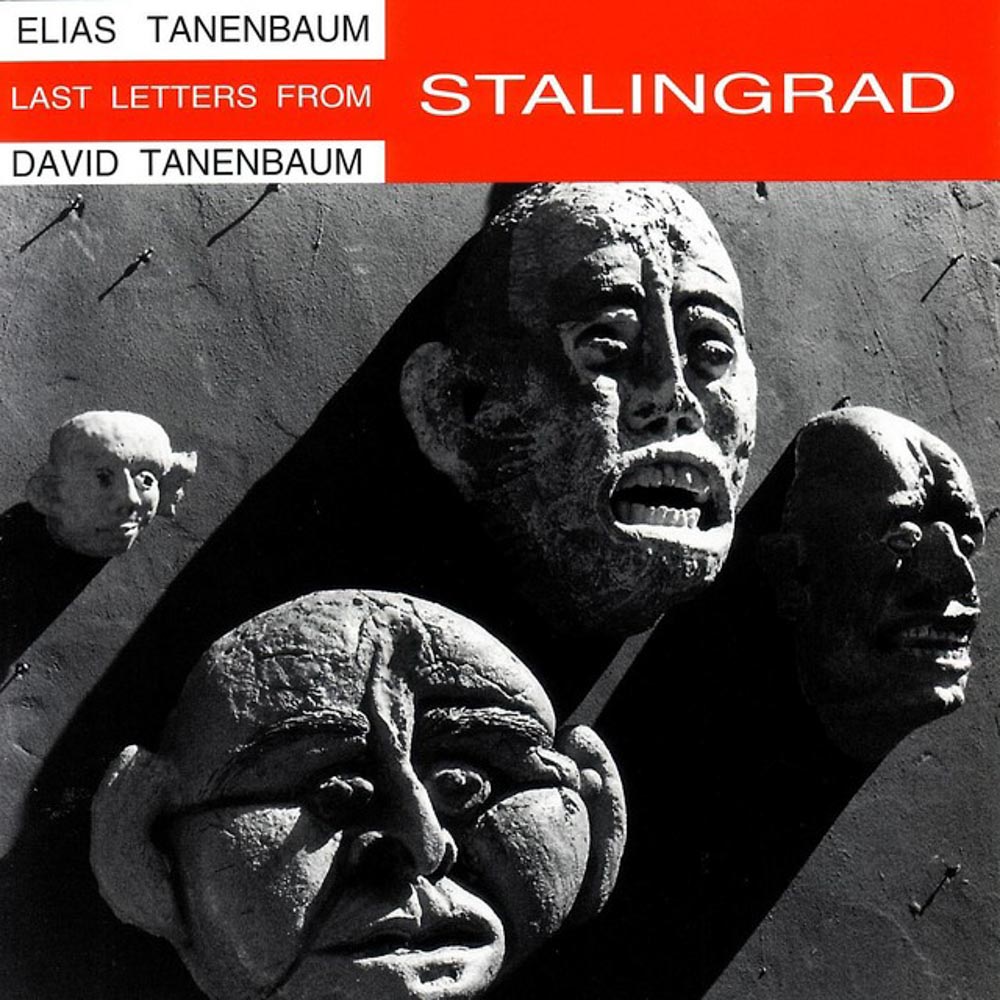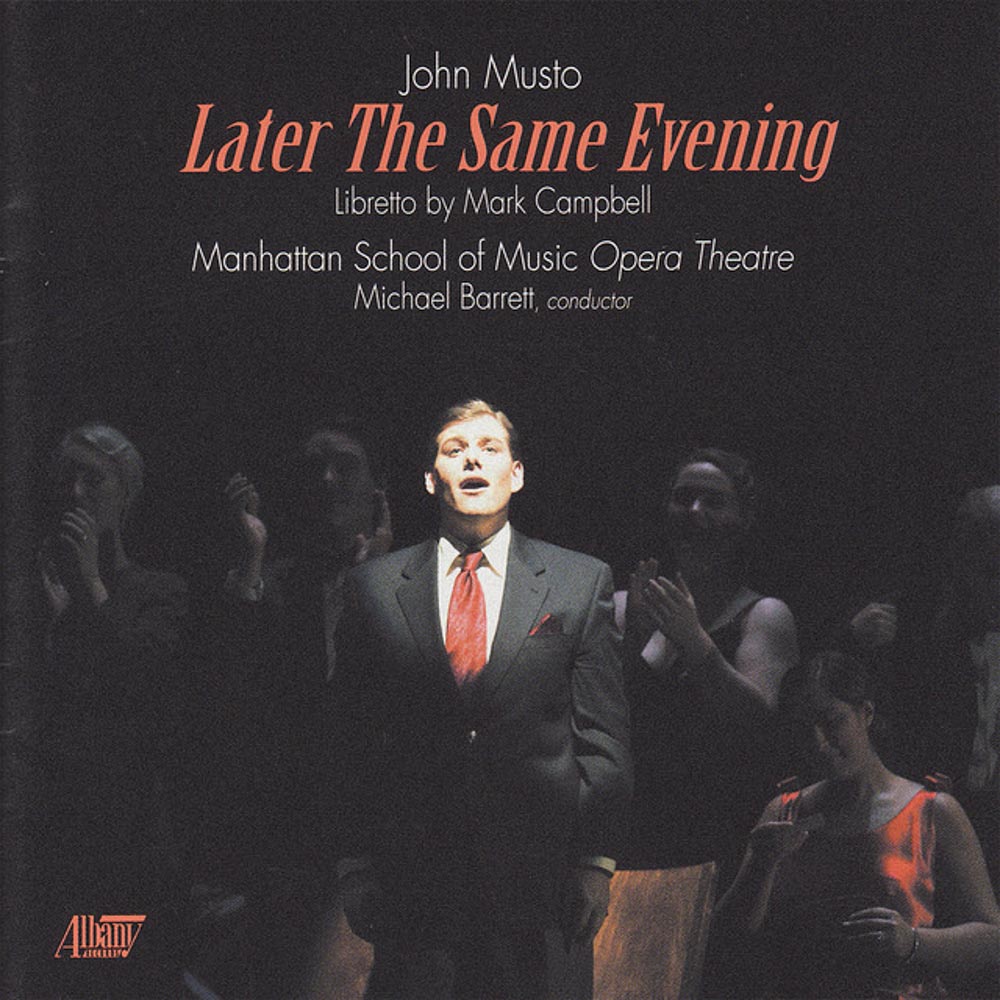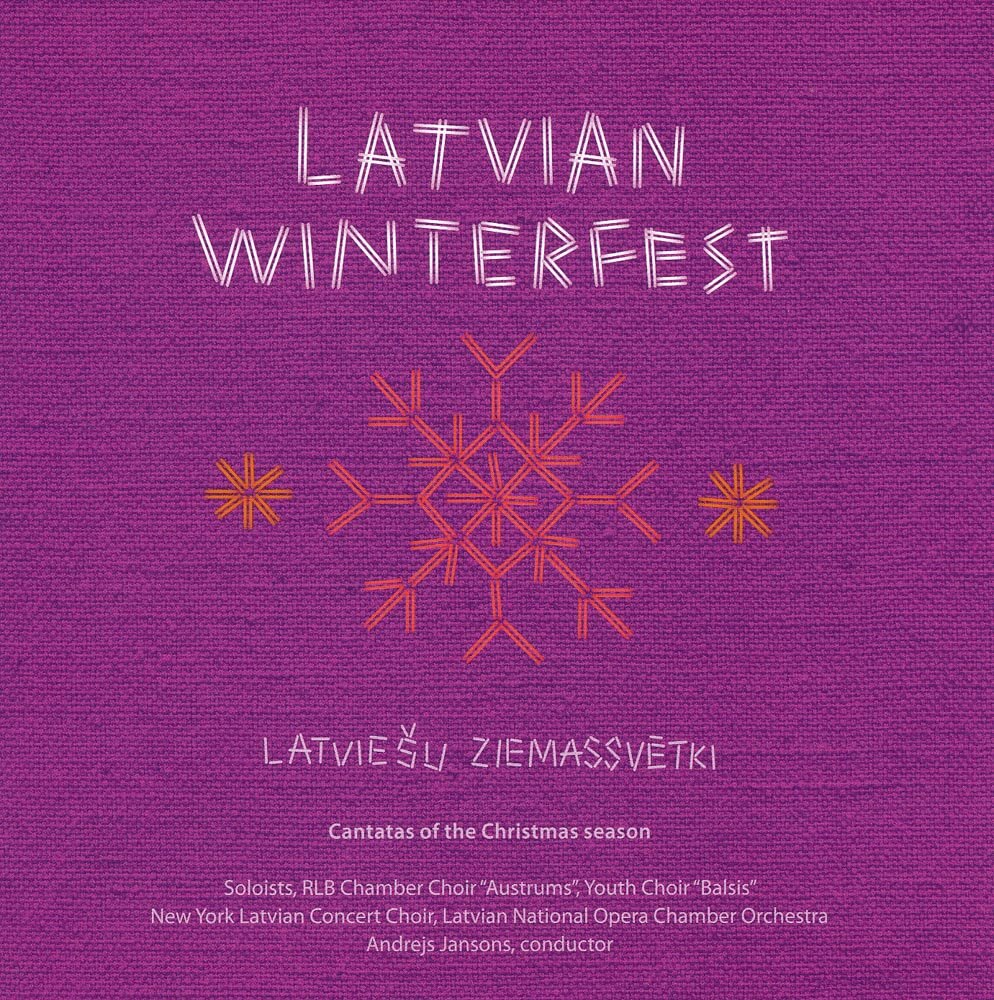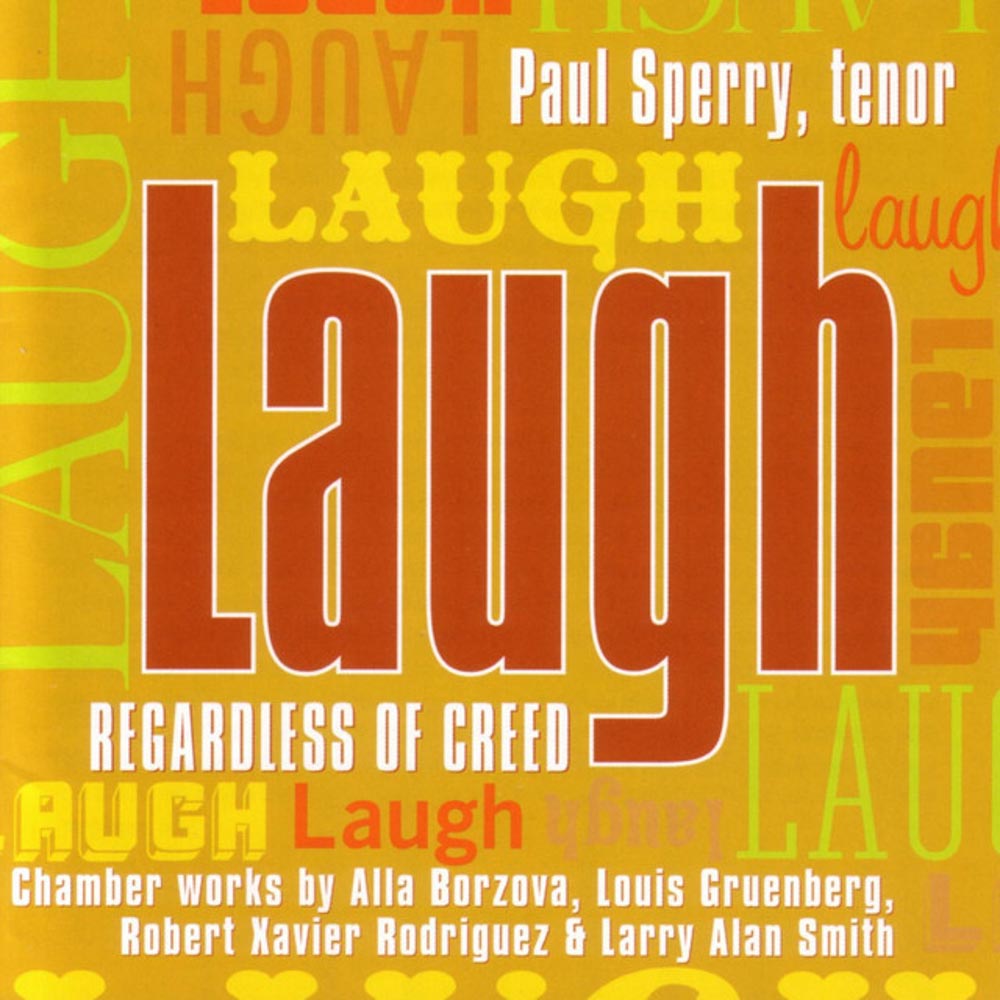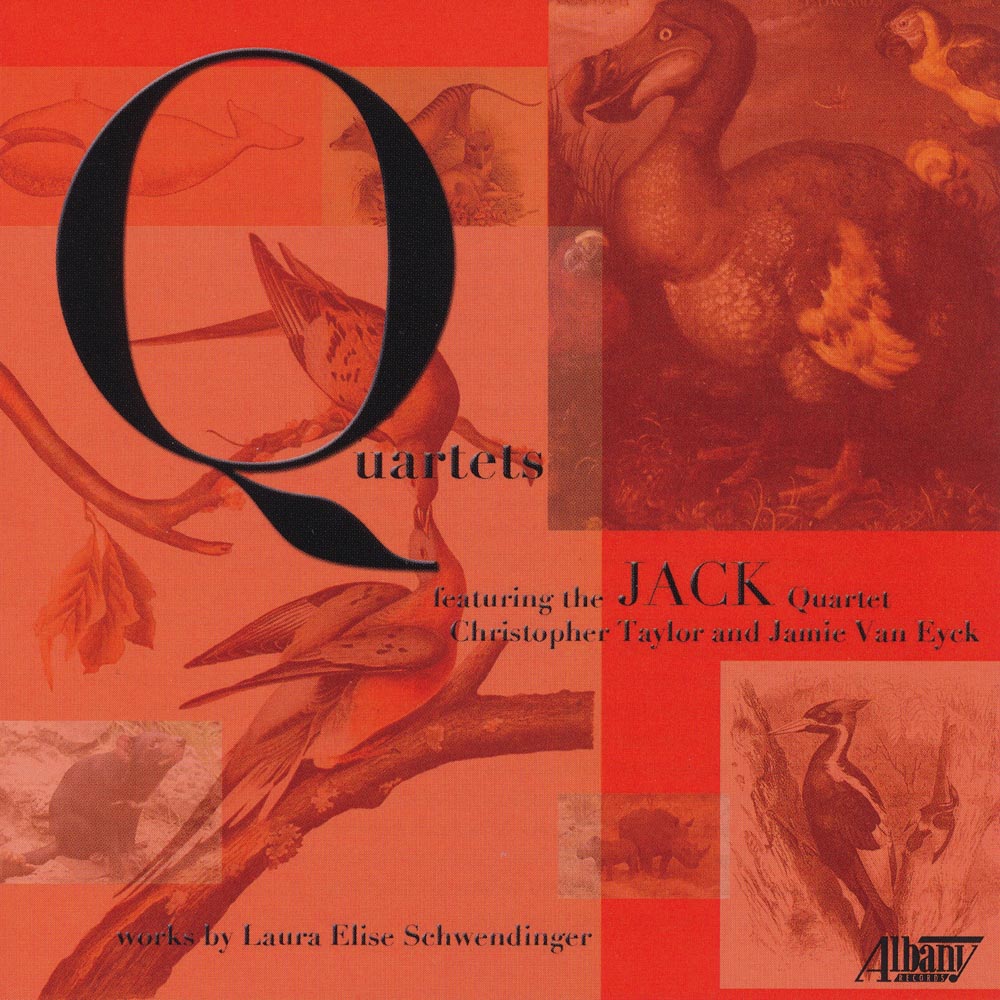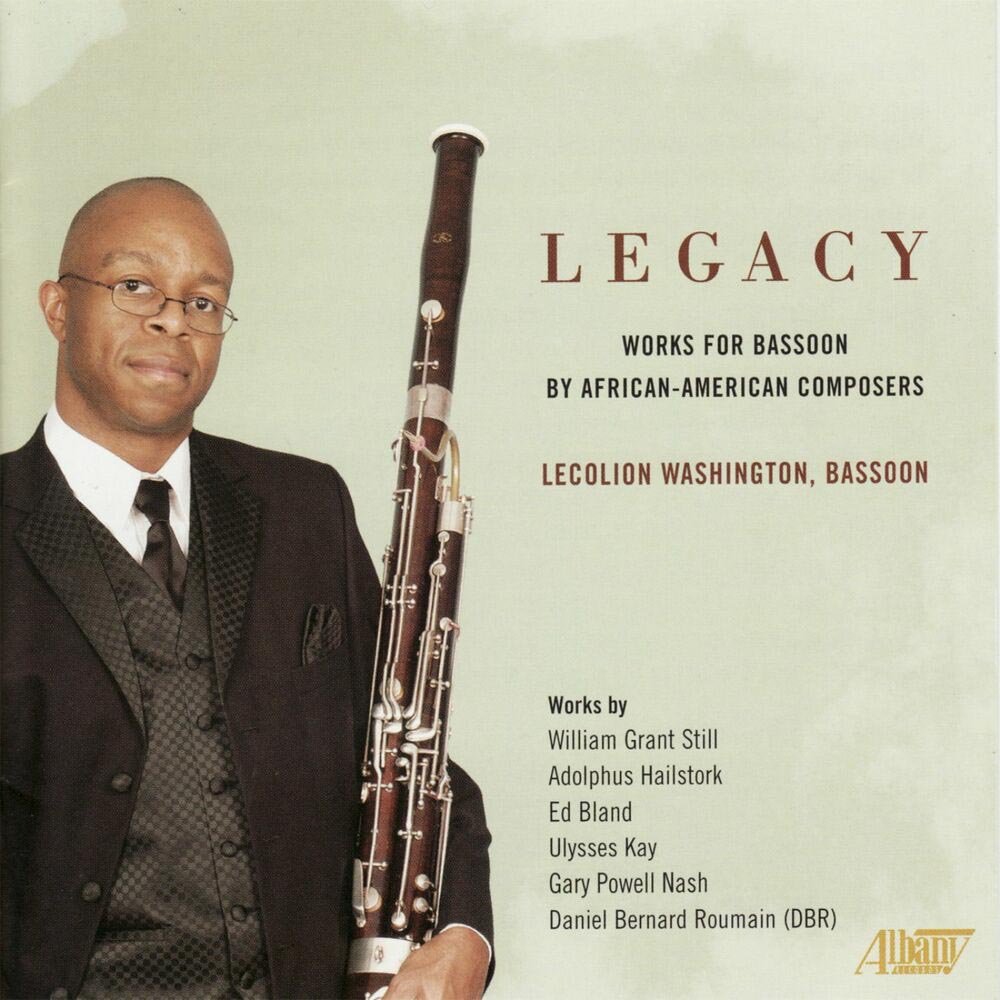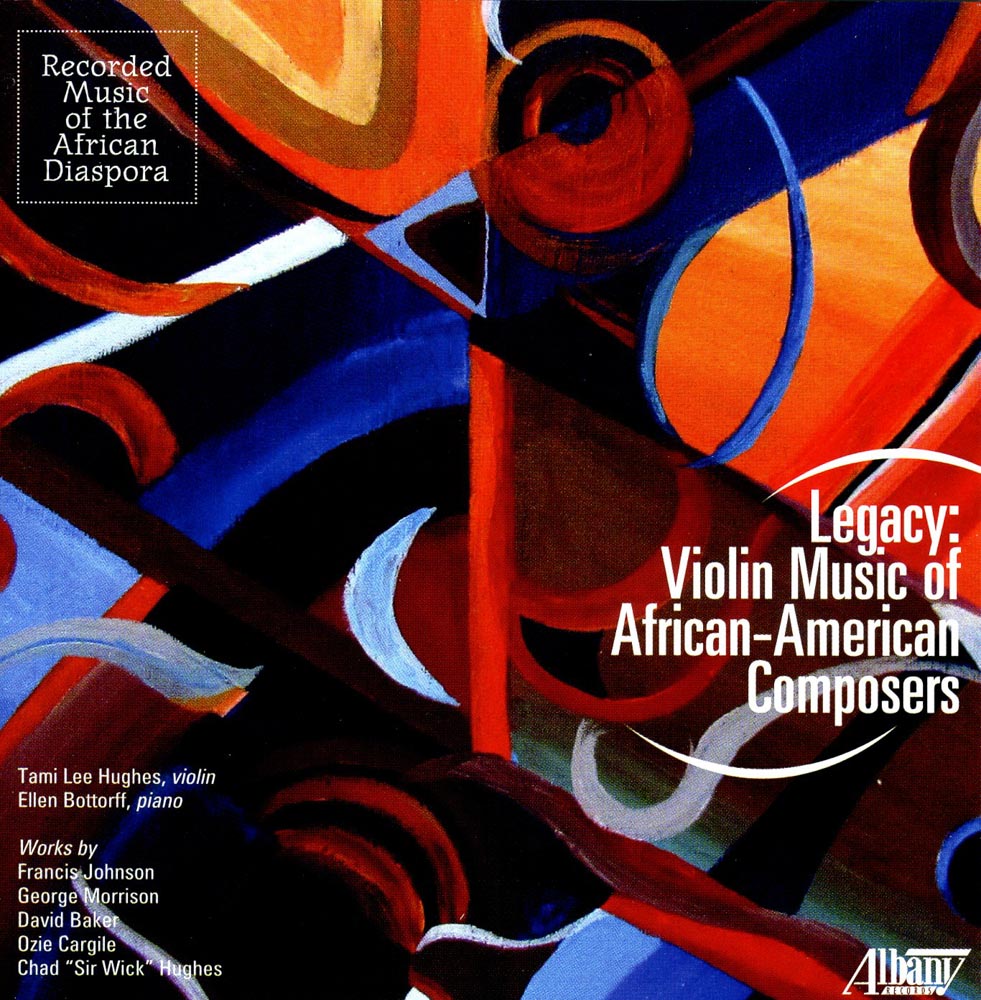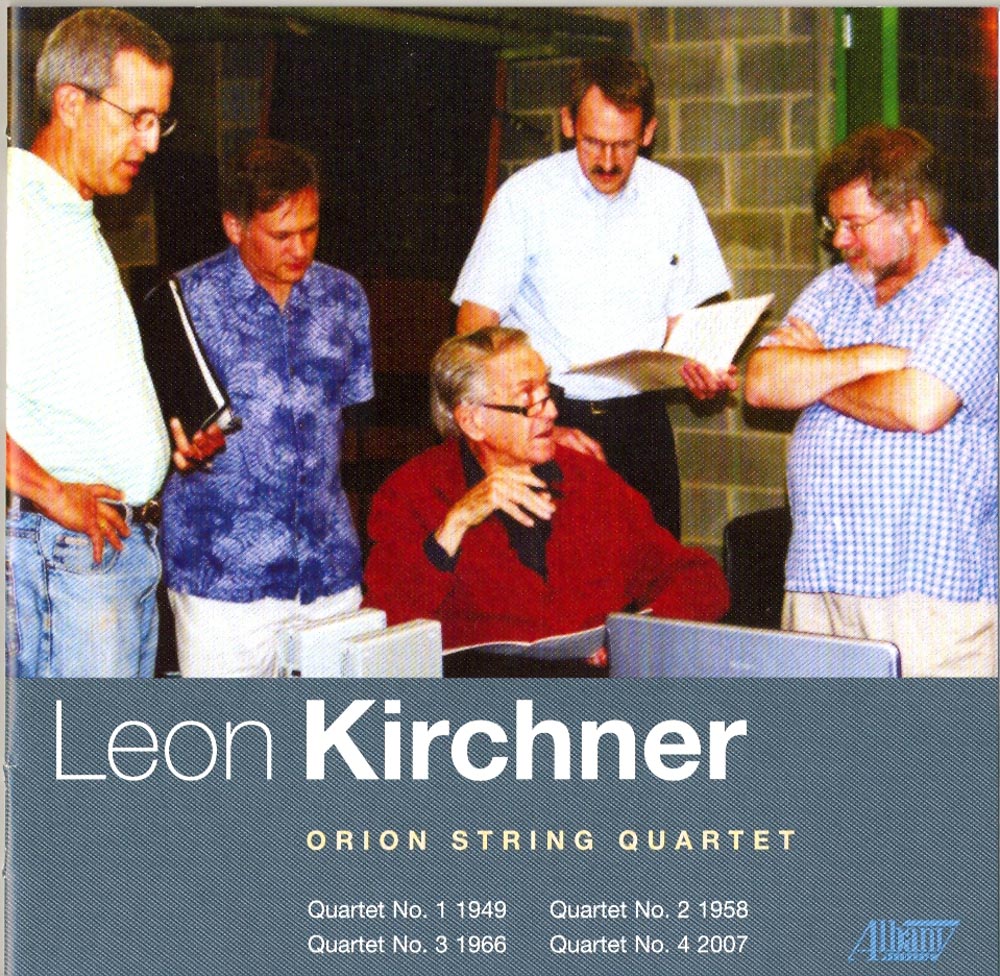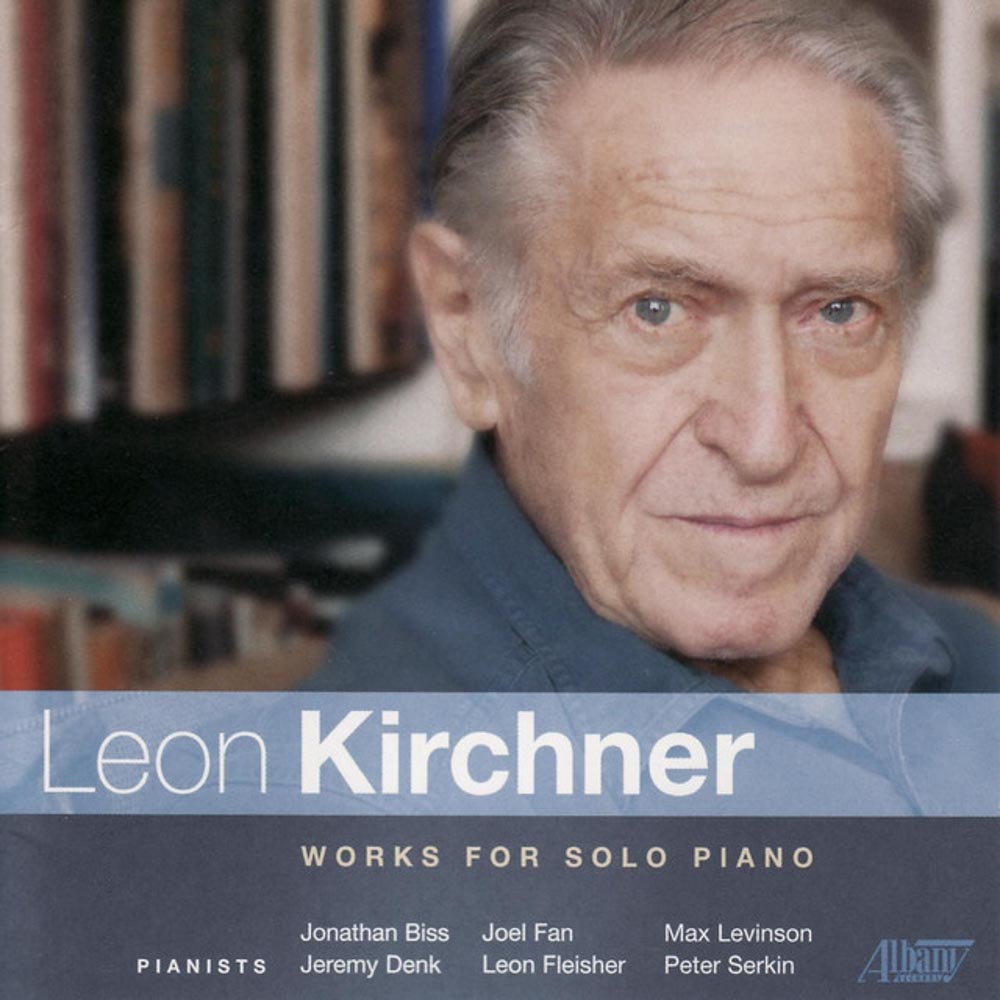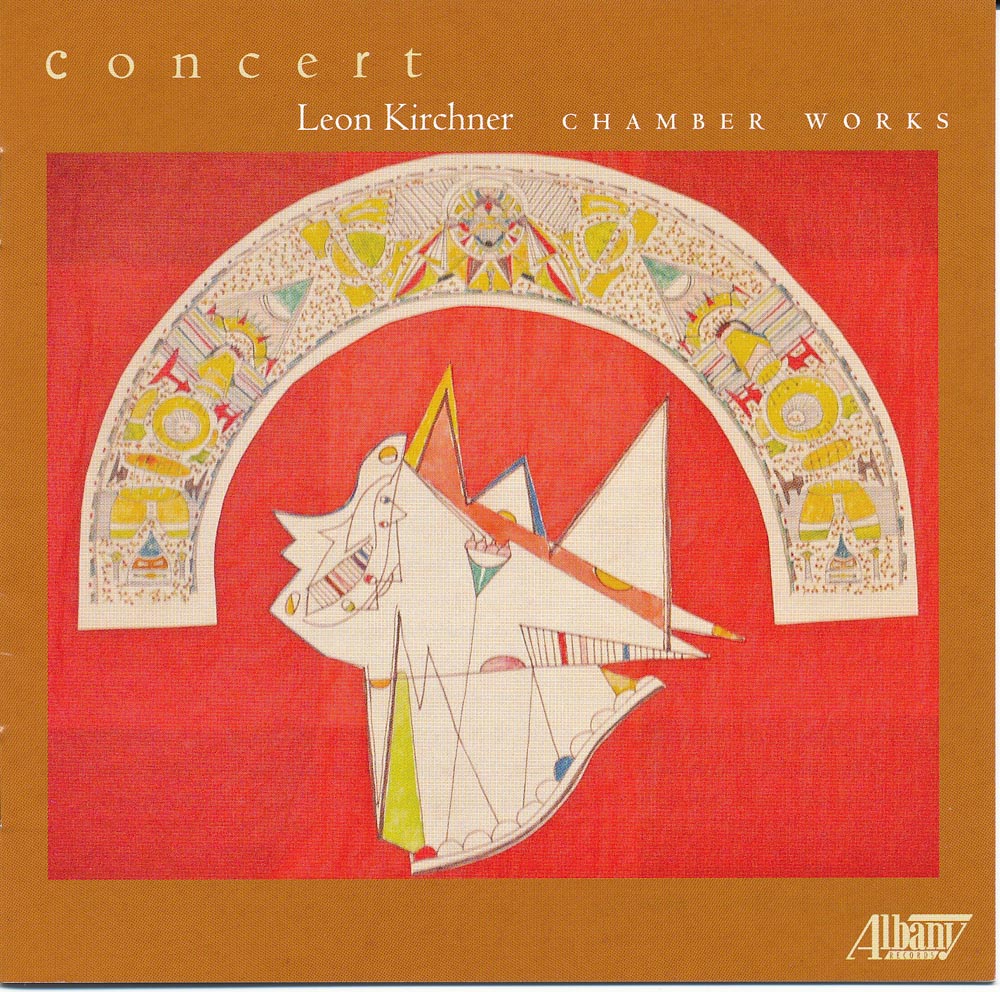Catalog #: TROY0439
Release Date: April 1, 2001InstrumentalLettie Beckon Alston was born in Detroit, Michigan. She now resides in Michigan and is Associate Professor of Music at Oakland University. At the age of 15 she began piano lessons. She went to Wayne State University where she studied piano and composition. She graduated with her bachelor and masters degrees. She was the first African-American composer to obtain a Doctor of Musical Arts degree from the University of Michigan, where she studied composition with Leslie Bassett, William Bolcom and Eugene Kurzt. She also continued to study the piano and took courses in electronic music. Dr. Alston went on to teach at Wayne State University in 1983, the Detroit Public School in 1986, Oakland University as a Visiting Assistant Professor in 1987 and Eastern Michigan University in 1988. She returned to Oakland in 1991. This recording is entitled "Keyboard Maniac" because of the excitement electronics bring to Art Music, and Lettie Alston says, "as a composer, pianist and organist writing for the piano and electronic medium has been a spiritual awakening for me."
Catalog #: TROY0147
Release Date: February 1, 1995InstrumentalThis disc is another volume in the series of complete keyboard works performed by the acclaimed fortepianist Lola Odiaga. See information for TROY045, TROY062 and TROY094.
Catalog #: TROY1498
Release Date: July 1, 2014InstrumentalComposer John McDonald joins two of his former students, Ryan Vigil and David Claman, in a recording of their keyboard compositions. A professor at Tufts and chair of the music department there, McDonald is a composer/pianist whose output features vocal, chamber and solo instrumental works. Ryan Vigil studied with McDonald at Tufts University before completing his doctorate at Yale, and is now on the faculty at the University of New Hampshire. David Claman, a graduate of the University of Colorado and Princeton studied with McDonald at the Longy School in Cambridge. He is on the faculty at Lehman College-City University of New York. Three voices, four hands, and myriad expressive twists capture the intention of Keypunch.
Catalog #: TROY0597
Release Date: July 1, 2003ChamberEric Moe, composer of what the New York Times calls "music of winning exuberance," was educated at the University of California at Berkeley and at Princeton University. He is currently Professor of Composition and Theory at the University of Pittsburgh, where he directs the graduate program in composition and the department's electro acoustic music studio. As a pianist and keyboard player, Moe has performed works by hundreds of composers from Anthony Davis to Stefan Wolpe. A founding member of the San Francisco based EARPLAY ensemble, he currently co-directs the Music on the Edge new music concert series in Pittsburgh.
Catalog #: TROY0736
Release Date: April 1, 2005ChoralAlexander Levine was born in Moscow and studied piano from the age of six at the Gnessin Music School, and later he took up the clarinet. Upon graduation he was offered a place at the Moscow Gnessin Music Academy. During his college years he also held the position of Principal Guitar in the Orchestra of Russian National Radio and Television. In the years that followed he established himself as a composer working in collaboration with a variety of highly acclaimed performers in Russia. Since 1992, he has lived in the United Kingdom. He then continued to pursue his musical studies at the Guildhall School of Music and Drama where he studied with among others, Simon Bainbridge. The title Kolokola translates into English as church bells or rather the toll of the bells. A great deal can be said about the religious, historical, and philosophical aspects of bell ringing, and in Russian culture it had always been a particularly powerful, almost archetypal image. This image of church bells prevails throughout the entire work, which was originally conceived as a projection of various aspects of human existence with a wide range of historical, religious and Russian folklore cross-references. There are complete Russian/English texts included in the program booklet.
Catalog #: TROY0489
Release Date: December 1, 2001ChamberLeo Kraft is active as a composer, educator, and author. After receiving degrees from Queens College and Princeton University, he joined the faculty of Queens College in 1947, and retired in 1989. While the bulk of his work consists of chamber music, he has written orchestral, piano and vocal music as well. The composer writes: "About the Six Pieces for Violin and Piano Obbligato, as the title implies, these pieces feature the violin, while the role of the piano is more than an accompaniment, but less than an equal partner, hence the term obbligato. Imagining the violin as a great actor capable of portraying many roles, I found a different kind of expression in each piece. Line Drawings was written for Paul Dunkel, who gave the first performance with Richard Fitz in 1972. The linear nature of the music suggested the title. Paul Maynard was an outstanding performer and scholar in Renaissance and Baroque music. He was a major presence on the faculty of the Aaron Copland School of Music, and it is to his memory that The Garden of Memory for harpsichord (on which he performed so marvelously) is dedicated. The poetry of e.e. cummings has delighted me since my student days, but only recently did I feel that I had the means to do justice to some of my favorite poems. I heard a tenor voice and a small group of instruments. My aim was to get beneath the surface of the elegant lines to the deeper meaning below. My second chamber symphony is indeed a symphony in the classical sense, which is to say that the work is highly developmental, spacious in gesture, and ambitious in scope."
Catalog #: TROY0302
Release Date: May 1, 1999OrchestralThe Concerto for Timpani and Orchestra was commissioned by Percussion Projects for Thomas Akins and the Indianapolis Symphony Orchestra. The premiere took place March 9, 1984, with John Nelson conducting and subsequently won the second prize in the Kennedy Center Friedheim Awards. The music was composed during 1983 at the MacDowell Colony. About his Piano Concerto William Kraft writes: "In 1971, the Ford Foundation announced its second round of grants to soloists who, in turn, were to select composers of their choice. One of the recipients was the young and very dramatic pianist Mona Golabek. After nearly a year of searching, listening and interviewing, Ms. Golabek called me to discuss the project, and eventually offered me the commission." The concerto was written during 1972-1973 and then revised in 1989. It was John Cerminaro who asked William Kraft to write a piece for him. Evening Voluntaries was composed in 1980, but sat unplayed because Mr. Cerminaro felt it was unplayable. Mr. Kraft prevailed and the piece was given its premiere by Jeff von der Schmidt on May 16, 1983, at the Monday Evening Concerts in Los Angeles. It was Jeff von der Schmidt who this time commissioned Veils and Variations. It was completed in May, 1988. It was first performed by the forces heard in this recording on January 27, 1989. It won the first prize in the Kennedy Center Friedheim Awards.
Catalog #: TROY0791-92
Release Date: September 1, 2005OperaBy his mid-twenties Gluck was already writing operas, set to the libretti of revered Italian dramatist Pietro Metastasio. By 1750 he had settled in Vienna. The young composer was soon engaged at the Burgtheater in Vienna to tailor French operas and opera-comiques to Austrian taste (frequently inserting selections of his own music). The Hapsburg royal family, Empress Maria Theresa in particular, was very fond of the composer. Gluck had composed music for regal birthdays and namedays and participated in the celebrations for the second marriage of the eldest son Archduke Joseph in January 1765. For the wedding festivities Gluck had been commissioned to supply a short opera with Metastasio's libretto. Four of Maria Theresa's daughters were accomplished musicians and sang in that new work, Il Parnaso confuso (available on TROY655). This was such a success that another work was commissioned: La Corona. But due to the Emperor's sudden death, the work was not presented; Gluck never heard it, and it was not performed until our own time. The work, based on a Greek myth dealing with a dispute over who shot the fatal blow during a hunt for a wild boar terrorizing a kingdom, has a clarity and a directness which is both refreshing and new. Gluck's stated credo, "I believe that my greatest labor should be devoted to seeking a beautiful simplicity, to avoid making displays of difficulty at the expense of clearness" applies very well to this lovely score. Opera lovers will rejoice at this presentation, another in this wonderful series featuring Julianne Baird and her stellar companions. And, as a delightful bonus, two examples of Gluck's relatively small chamber output are included as the perfect encores.
Catalog #: TROY0904-05
Release Date: January 1, 2007OperaThis biblical story, with its historical references to specific cities, generals and kings, is accepted as canon by Roman Catholic theologians, although it doesn't appear in either Hebrew or Protestant scriptures. The Book of Judith is set in the time of the mighty Assyrian ruler Nebuchadnezzar, King of Nineveh. Seeking to expand his empire, the king sends armies, led by General Holofernes (Oloferne), to subdue neighboring kingdoms, all of whom surrender under his powerful forces. The only ones who refuse to capitulate are the Israelites, who cordon off their mountain passes and gather provisions to resist a siege. Instead of a massacre, Holofernes discovers and commandeers their water sources. Faced with drought, the elders of Israel prepare to surrender. Their leader, Prince Ozias, suggests a five-day wait, during which interval Israel's prayers for help may be heard by God. It is at this point that Scarlatti's oratorio takes up the story, depicting the entrance of the pious Judith (Giuditta) who will distract Holofernes until she is able to slay him and make her escape, displaying his severed head, causing the enemy to retreat, sparing the Israelites. Scarlatti's score is in the Italianate style of the period, and the work is largely continuo-driven, with string ritornelli concluding most of the arias. This stellar performance, with the renowned Julianne Baird in the role of Judith/Giuditta, brings this remarkable story to blazing life.
Catalog #: TROY0451
Release Date: July 1, 2001ChamberPreeminent in the American musical landscape not only as an artist but also as an administrator, Francis Thorne was born in Bay Shore, New York in 1922. A self-taught jazz pianist, he had hoped for a professional career in music but was deterred by active naval duty in World War II, a young family to support and a dismissive appraisal at Yale by the redoubtable Paul Hindemith. So for several years he worked on Wall Street, like his stockbroker father, and kept music essentially a hobby until a serendipitous recommendation from Duke Ellington led to a number of prestigious jazz engagements. With this rekindling of his musical ambitions, he ultimately traveled to Florence, Italy, studying under the American composer David Diamond, and remained there with his family until 1964. Thorne has served as executive director of the American Composers Alliance and helped organize the American Composers Orchestra and served for many years as its president. His many compositions ranging from symphonies to solo pieces reveal a love of tonality-based chromaticism, uniting the European musical heritage with the jazz tradition native to America.
Catalog #: TROY1052
Release Date: October 1, 2008ChamberFor all the differences among them, Joaquín Turina, Alexandre Tansman, and Carlos Surinach were alike in one regard: each was sympathetic to making his music an affirmation of his cultural heritage. At the same time, their lives spanned a period when modernism was sweeping away the romantic tenets that had upheld 19th-century nationalism. Hence, each came to fashion a distinctive amalgam of nationalist tendencies and newly emergent techniques and modes of thought. Given beautiful performances by the Ames Piano Quartet, the recording ends with a work by Astor Piazzolla that was written as part of the incidental music for a play by Alberto Rodriguez Muñoz.
Catalog #: TROY1664
Release Date: March 1, 2017VocalLouise Toppin has received critical acclaim for her operatic, orchestral, and oratorio performances throughout the United States, Europe, Asia, New Zealand, and the Caribbean. She has appeared in recital on many concert series including Carnegie Recital Hall, Merkin Hall, Kennedy Center, and Lincoln Center. Her discography includes 16 recordings of American music. In addition to her concert career, she serves on the faculty at the University of North Carolina, Chapel Hill.She is joined by fortepianist John O'Brien. They began their collaboration as colleagues at East Carolina University and have performed throughout the country on concert series. This recording gives listeners the opportunity to hear songsby lesser known and canonic composers alikeas they might have sounded with their original fortepiano accompaniment. La saison des fleurs lets us experience the many-shaded efflorescence of the art song genre anew, when poetry, voice, and piano joined together to create a higher artistic whole.
Catalog #: TROY0405
Release Date: August 1, 2000OperaRichard Trauber who made the English translation of this work writes: "Spanish operetta is technically older than any other European operetta form, taking its name from the Zarzuela Palace outside Madrid. Zarzuela went through various transformations over succeeding decades, taking on attributes of other European musical-theater forms: Italian grand and comic opera, French opera-comique, operetta, and even revue. Tomas Breton's The Festival of Our Lady of the Dove is widely regarded as perhaps the most perfect of all short zarzuelas. The music heard on this recording is exactly what was heard in 1894, with a very close English approximation to the original Spanish libretto (included). In addition, we have added a typical operetta finale to the work."
Catalog #: TROY1896
Release Date: May 15, 2022ChamberThis recording marks the debut recording by Lakeshore Rush, a chamber music ensemble based in Chicago. The recording consists of beloved recordings from their concerts as well as some studio recordings. The composers represented include a vast array of styles within the contemporary chamber music genre. Eight of the composers are American; seven are living; and the works by Jonathan Hannau and Pierre Jalbert were commissioned by Lakeshore Rush. The works by Philip Glass and Bill Ryan are the ensemble's creative reinterpretations of pieces that have entered the contemporary cannon, and the Radiohead is an arrangement commissioned and performed exclusively by Lakeshore Rush.
Catalog #: TROY1655
Release Date: January 1, 2017ChoralBruno Skulte (1905-1976) was a talented composer as well as a dynamic conductor and organist. He drew most of his inspiration from the culture of his Latvian homeland even though he lived in Germany and the United States. Skulte left Latvia for Germany when the Soviets invaded in World War II, along with thousands of other Latvian refuges. He emigrated to the U.S. in 1949 and lived the rest of his life there. He was the organist and choir conductor for the Latvian Lutheran Church of New York as well as two other Latvian choirs. He carried on the tradition of Latvian song festivals with hundreds and even several thousand singers on stage. While he never stopped composing, his works were not heard in Latvia during the Soviet occupation as they were deemed too "Latvian." His choral music is sonorous, lyrical, emotional, at times dramatic, and always sincere. The Latvian coloring is created mostly by the lyrics. Skulte used lyrics that seemed to express Latvian sensitivities: love of nature, love of country and other virtues taught by the dainas, the ancient Latvian folk poems. He died in New York, never having been able to revisit his beloved Latvia.
Catalog #: TROY0986
Release Date: November 1, 2007ChamberRecognized as a "major talent" by the Chicago Tribune, Larry Bell has been awarded the Rome Prize, fellowships from the Guggenheim and Rockefeller Foundations, and the Charles Ives Award. A student of Vincent Persichetti and Roger Sessions, his music has been widely performed in the United States and abroad, and as a pianist he has championed the works of American composers.
Catalog #: TROY1917-18
Release Date: January 1, 2023InstrumentalInfluenced by Bach's magisterial Well-Tempered Clavier, Book I, composer Larry Bell's 24 Preludes and Fugues actually began as another work and it wasn't until he wrote a Prelude and Fugue in F Major for piano that he decided to complete the remaining preludes and fugues. Bell wrote the fugues first with their preludes being fashioned out of motives derived from the fugue's subject. Each is self-contained and designed to culminate in one large narrative that the listener may experience without knowing any of the specialized techniques of its composition. Larry Bell is an award-winning composer with the Rome Prize and the Charles Ives Award from the American Academy of Arts and Letters to his credit, among many orders. His music has been commissioned and performed by a distinguished array of performers, chamber ensembles, and orchestras. The 24 Preludes and Fugues are performed by four outstanding pianists — Carmen Rodríguez-Peralta, Maja Tremiszewska, Jennifer Elowsky-Fox, and John McDonald — all of whom enjoy noted careers as recitalists and chamber musicians.
Catalog #: TROY1308-09
Release Date: November 1, 2011VocalThe Seasons, a cantata in five section--Fall, Winter, Spring, Summer, Final--is organized with four song cycles made up of five songs that can be performed separately and a Finale uniting all the voices and instruments. The major work on this program, lasting in excess of 75 minutes, The Seasons sets the profoundly intimate and vividly imagistic poetry of Elizabeth Kirschner. Composer Larry Bell's music has been widely performed in the United States and abroad by the Atlanta Symphony, Seattle Symphony, RAI Orchestra of Rome, Juilliard Philharmonia, Boston Modern Orchestra Project, Boston Civic Symphony, the Boston Chamber Music Society, Speculum Musicae, and the St. Luke's Chamber Ensemble, among others. His music appears on North/South, Vienna Modern Masters and Albany Records. He is the recipient of the Rome Prize and the Charles Ives Award from the American Academy of Arts and Letters.
Catalog #: TROY0247
Release Date: June 1, 1997ChamberElias Tanenbaum was born in Brooklyn and studied trumpet at an early age and played with assorted jazz bands. After serving with the U.S. Army in World War II, he received a B.S. from Juilliard and an M.A. from Columbia. His composition teachers included Dante Fiorillo, Bohuslav Martinu, Otto Luening and Wallingford Riegger. To date he has composed more than 100 works in all idioms and his music includes works for the concert hall, jazz, theater, television and ballet as well as electronic and computer music. He is currently Visiting Composer at the California Institute for the Arts, on the composition faculty at the Manhattan School of Music, and Director of the Electronic Computer Music Studio. The largest work on the disc, Last Letters from Stalingrad, consists of excerpts from letters written by soldiers from the German Sixth Army who were surrounded at Stalingrad in 1942-43. Of the 300,000 men in that army, only about 5,000 survived. What happened to those German soldiers in 1943 can and does happen to people everywhere. What would any of us write if we knew we were surrounded and doomed and that we had been sold out and abandoned by our leaders. The German High Command, in order to ascertain the morale of the troops, allowed the soldiers to send letters home. The letters were then impounded, opened and the addresses and senders' names removed. They were then classified by content and general tenor, tied in neat bundles, and eventually stored in the archives. Although the Germans were our enemies in 1943, these letters are a human document that bares the soul of men in their worst hour. This is a most moving composition.
Catalog #: TROY1109
Release Date: April 1, 2009OperaJohn Musto's one-act opera, Later The Same Evening is set in Manhattan in the 1950s and was inspired by a series of paintings by Edward Hopper. Later the Same Evening enjoyed a New York premiere at the Manhattan School of Music. The New York Times lauded "Mr. Musto's musical-theater-like score, which features recurring marimba riffs, chromatic interludes, fugal passages and hints of blues and jazz." Musto's music displays a rare and creative integration of all the idioms available to the 21st century composer.
Catalog #: TROY1620
Release Date: April 1, 2016PianoFlutist Stephanie Jutt with pianist colleagues Pablo Zinger and Elena Abend performs songs and compositions from Latin American and Spanish composers that deserve much greater recognition. Her lifelong love of song and dance music originated from her early musical memories listening to her grandparents sing Mexican songs. Regardless of the music's origins, whether in vocal or instrumental compositions, the flute speaks and sings -- and at times even dances. As you listen to this recording, you will likely be enchanted by the music, not thinking about whether it is original instrumental music or a song transcription. Stephanie Jutt is one of the most renowned flutists of her generation. A first prizewinner in the International Concert Artist Guild and Pro Musicis International Soloist Competitions, she has earned major grants from the Rockefeller Foundation and the National Endowment for the Arts, among others. A graduate of the New England Conservatory, Jutt is artistic director and co-founder of the Bach Dancing & Dynamite Society. On the faculty at the University of Wisconsin-Madison, her recordings appear on the Centaur, GM Records and University of Wisconsin-Madison Press labels.
Catalog #: TROY1851
Release Date: December 1, 2020ChoralAn annual tradition of the New York Latvian Choir is to perform an Advent concert. Since the repertoire was limited, the choir launched a project to commission a new composition every year from a different Latvian composer. To date this ongoing project has contributed 40 Christmas cantatas to the Latvian music repertoire. The works of the four composers on this recording have created an overview of Latvian Christmas traditions over multiple centuries. The work of Andrejs Sejans is closely tied to early religious traditions; with Martins Brauns weaves the texts of Latvian poets with his music; Andrejs Jansons has created a work reflecting a classical Latvian Christmas cantata; and Laura Jekabsone's work is a contemporary Christmas composition.
Catalog #: TROY1389
Release Date: December 1, 2012ChoralMusic has been a strong political, unifying force for the Latvian people. It rose slowly, out of folk songs, during the 700 years of oppression by Russian tsars and German overlords. Poetry and song, with their indirect and symbolic undertones, became an inside language a way of passing on messages, revisiting legendary heroes and building confidence. Latvian composers have fused their folklore with contemporary trends and this recording is an example of this fusion. Cantatas for the Christmas season by three of Latvia's most well-known composers are offered. Sung by the New York Latvian Concert Choir with the Latvian National Opera Chamber Orchestra conducted by Andrejs Jansons, the recording was made in Latvia in February, 2012. The New York Latvian Concert Choir was founded in 1975. Since the break up of the Soviet Union and the re-establishment of Latvia's independence, the choir has regularly collaborated with choirs and soloists in Latvia. Its mission has been to keep alive and promote Latvian music within the Latvian communities of the U.S., Canada, Australia and elsewhere and to introduce these countries to Latvia's ongoing cultural heritage.
Catalog #: TROY0740
Release Date: March 1, 2005VocalPaul Sperry writes: "I've always loved to perform humorous pieces, whether slyly witty or raucously funny. It seemed irresistible to collect these four marvelous pieces together on a CD since they are all by American composers and writers and they all deal with religious topics in, as Woody Allen puts it, 'a somewhat dubious way.'" Classical jazz achieved international recognition in 1925, when Louis Gruenberg's The Daniel Jazz was chosen to represent American music at the Venice Festival of the International Society for contemporary music, where it won overwhelming success. Based on a sermon poem by Vachel Lindsay, this piece was written during a period when Gruenberg was exploring the possibilities of popular jazz as an idiom in classical music. In 1924, he wrote: "It has become my firm conviction that the American composer can only achieve individual expression by developing his own resources...these resources are vital and manifold, for we have at least three rich veins indigenous to America alone: jazz, Negro spirituals and Indian themes." Alla Borzova writes: "Mother Said borrows its title from the book by Hal Sirowitz. His witty and touching poetry is about families and relationships. In Mother Said, I use a variety of musical styles and techniques: rap, Klezmer, Dixieland, a Chinese folk tune and a 12 tone row." The text of Tango was actually compiled by Robert Xavier Rodriguez from news clippings, letters and sermons from the height of the tango craze in 1913-1914. There are three short scenes played without pause and the tenor plays all three roles. Larry Alan Smith writes: "The Scrolls was written for my New York debut concert in 1982, and it was premiered by Paul Sperry. As it was meant to conclude the evening, I looked for something unusual, entertaining and memorable. Woody Allen's tale immediately appealed to me, but only after beginning to compose the work did I realize how challenging it would be to set a humorous text effectively."
Catalog #: TROY1752
Release Date: December 1, 2018ChamberEmbracing the unlikely combination of saxophone and harp, the Admiral Launch Duo (Jonathan Hulting-Cohen, saxophone and Jennifer R. Ellis, harp) performs groundbreaking commissions, unexpected transcriptions, and improvisations on this their debut recording. Named for the Admiral butterfly and launched at the Fresh Inc Festival in 2013, the duo has since appeared at new music venues coast-to-coast. Hulting-Cohen is on the faculty at the University of Massachusetts Amherst and Ellis is credited with more than 80 world premieres. The Duo has spent several years researching and commissioning repertoire for saxophone and harp and this recording will certainly gain recognition for this unusual but beautiful ensemble.
Catalog #: TROY1704
Release Date: January 1, 2018ChamberThe first composer to win the Berlin Prize, Laura Schwendinger is professor of composition at the University of Wisconsin-Madison. Her music has been performed by all the leading new music artists and ensembles around the world and she has received numerous awards and commissions including those from the Guggenheim, Koussevitzky and Fromm Foundations. Her second recording for Albany Records features four works for quartets: two for the traditional string quartet; one for mezzo soprano and three strings; and one for piano quartet. The music is performed by the acclaimed JACK Quartet, mezzo-soprano Jamie Van Eyck, and pianist Christopher Taylor.
Catalog #: TROY1170
Release Date: February 1, 2010ChamberLawrence Dillon is best known for his chamber music, with commissions, performances and recordings by the American, Borromeo, Cassatt, Daedalus, Emerson and Mendelssohn String Quartets; this recording is the first to feature some of his many works combining words and music. Composer in Residence at the University of North Carolina School of the Arts, Dillon began composing at the age of seven, despite the complete loss of hearing in one of his ears due to a childhood illness. Appendage and Other Stories is a collection of Dillon's works that combine words and music. Entrance and Exit use spoken text, Still Point is sung and Appendage alternates between spoken and sung text.
Catalog #: TROY1038
Release Date: August 1, 2008InstrumentalLecolion Washington, Jr., a faculty member at the University of Memphis, has put together an intriguing mix of works for bassoon by African-American composers. Ranging from William Grant Still, who was born in 1895 to Daniel Bernard Roumain, born in 1970, the collection offers a concise history of African-Americans composers who have concentrated on classical music. Altogether a beautifully performed concert program of music for bassoon.
Catalog #: TROY1293
Release Date: August 1, 2011InstrumentalViolinist Tami Lee Hughes offers a survey of violin music by African-American composers that begins with a work written in 1820 by Francis Johnson and continues with music written in 1947, 1979, 2000 and ends with a work by Chad Hughes written in 2009. Ms. Hughes has appeared with symphony orchestras across the United States and is active as a recitalist and chamber musician as well. She is on the faculty of the University of Kansas. Collaborating with Ms. Hughes is fellow faculty member Ellen Bottorff, who has toured extensively throughout the U.S., Canada and Europe. This recording is the second of the series devoted to music of the African Diaspora, a collaboration between Albany Records and the Center for Black Music Research.
Catalog #: TROY1030
Release Date: June 1, 2008ChamberLeon Kirchner's life has been liberally peppered with moments of recognition for his powerful and innovative music. Both the first and second quartets heard on this recording received the Critics Circle Prize; the third received the Pulitzer. While still an undergraduate, he was accepted into Arnold Schoenberg's graduate composition seminar at UCLA. He has received many honors and prizes, including membership in the American Academy of Arts and Letters. He was a professor at Harvard University for 25 years. This recording includes his fourth string quartet, written in 2007 when Kirchner was 87, for the Orion String Quartet, who are able champions of his music.
Catalog #: TROY0906
Release Date: March 1, 2007InstrumentalAlbany is proud to present this generous selection of piano music by one of America's most important composers. Leon Kirchner is one of the last of that stalwart breed who first came to prominence in the late 1940's and early 1950s. A pupil of Bloch, Schoenberg and Sessions at the University of California, Berkeley, Kirchner's music definitely shows affinities with Schoenberg in outlook and temperament. No less than Schoenberg, Kirchner is both an ardent modernist and a volatile Romantic, a composer whose sophisticated awareness of the past informs a restless search for authenticity. A classic example would be his Piano Concerto No. 1, first recorded over 50 years ago by the composer himself with Dmitri Mitropoulos and the New York Philharmonic. Like much of the music on this disc, there is edginess and a tough demeanor, but there is real music present, in the "traditional" sense. This significant new release reissues classic performances by Leon Fleisher and Peter Serkin as well as presenting important recent pieces such as the Sonata No. 2 and The Forbidden.
Catalog #: TROY1177
Release Date: March 1, 2010ChamberThis recording, a collection of performances by some of the most celebrated performers of our time that Leon Kirchner considered extraordinary, continues the series on Albany Records devoted to this distinguished composer's music. Leon Kirchner, who died in December of 2009, performed regularly both as a pianist and conductor, but was always first and foremost, a composer. He left a legacy of masterworks and made an indelible mark on the history of contemporary music.
Catalog

©2024 Albany Records. All rights reserved. | Privacy Policy | Website by PARMA Creative.
